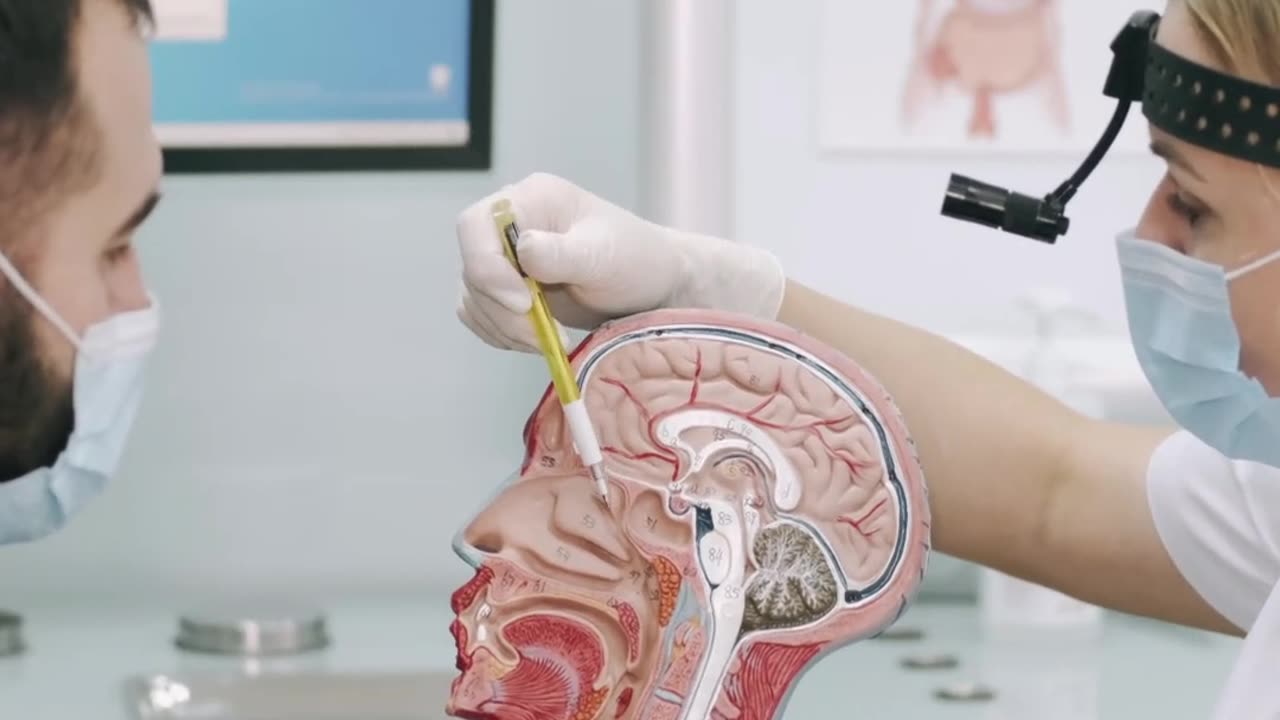Premium Only Content

Neuralink: The Future of Human-Computer Interaction #neuralink #elonmusk #technology #future #bci
Neuralink, the brain-computer interface company founded by Elon Musk, is poised to revolutionize the way we interact with the world. In this informative video, we'll delve into the latest advancements in Neuralink technology, explore its potential benefits and risks, and consider the ethical implications of this groundbreaking technology.
Neuralink's tiny implants, designed to be inserted into the brain, hold the promise of treating neurological disorders like paralysis and Alzheimer's disease. They could also enable mind-controlled devices, allowing us to interact with computers and other technology using our thoughts alone.
While Neuralink holds immense potential, it's important to approach this technology with caution. Safety concerns, privacy issues, and the potential for misuse raise significant ethical questions that need to be addressed.
Potential Risks of Neuralink
Safety: Inserting a device into the brain carries inherent risks of infection, bleeding, and long-term neurological damage. The precise effects of Neuralink implants on brain health and function are still being studied.
Privacy: Neuralink implants could potentially record and transmit vast amounts of personal data, raising concerns about surveillance and data breaches. Additionally, individuals could be manipulated or exploited by controlling their thoughts or actions.
Misuse: Neuralink technology could be used for unintended or harmful purposes, such as enhancing military capabilities or creating mind-controlled weapons. It could also be used for corporate espionage or to control individuals without their consent.
Ethical Implications
Human Enhancement: Neuralink technology could potentially enhance human cognitive abilities, raising questions about fairness and social equity. Should only a select few have access to such enhancements?
Free Will and Autonomy: Neuralink could influence or even control human thoughts and actions, potentially altering our sense of free will and autonomy. How can we ensure that individuals retain control over their own minds?
Social Impacts: The widespread use of Neuralink could fundamentally alter human society, potentially leading to job displacement, social stratification, and ethical dilemmas. How can we prepare for and mitigate these potential impacts?
Conclusion
Neuralink technology holds the potential to revolutionize human capabilities and our understanding of the brain. However, it's crucial to carefully consider the risks and ethical implications of this technology before pursuing widespread adoption. Open dialogue, rigorous research, and responsible development are essential to ensuring that Neuralink is used for the betterment of humanity, not for its manipulation or control.
#neuralink #elonmusk #bci #braincomputerinterface #technology #innovation #future #humancomputerinteraction #paralysis #alzheimersdisease #ethicalimplications #braintech #youtubeshorts #tiktok #rumble #instagram
-
 2:21:20
2:21:20
Robert Gouveia
10 hours agoTrump Goes to SCOTUS! Judge CAVES on DOGE? Fani Willis Not Happy!
101K30 -
 20:41
20:41
Stephen Gardner
10 hours ago🔥You Won't BELIEVE What JUST Happened To Don Trump Jr.!!
105K161 -
 58:00
58:00
The StoneZONE with Roger Stone
8 hours agoEuropean Leaders Resist Trump Peace Overtures To Their Own Demise | The StoneZONE w/ Roger Stone
73.3K12 -
 9:29
9:29
AlaskanBallistics
10 hours ago $8.77 earnedWyoming Suppressors and Rifles at Shot Show 2025
82.6K4 -
 1:06:40
1:06:40
Donald Trump Jr.
14 hours agoThe Left is Taking one L After Another, Live with Michael Knowles | Triggered Ep. 217
175K115 -
 47:17
47:17
Kimberly Guilfoyle
14 hours agoWoke Gets DOGE’d, Live with AJ Rice & Jarrett Stepman | Ep. 197
129K43 -
 20:11
20:11
Candace Show Podcast
12 hours agoBecoming Brigitte: Candace Owens x Xavier Poussard | Ep 6
193K332 -
 8:25:38
8:25:38
Dr Disrespect
17 hours ago🔴LIVE - DR DISRESPECT - ELDEN RING DLC - REVENGE
194K22 -
 54:22
54:22
LFA TV
1 day agoThe End of the Trans-Atlantic Alliance | TRUMPET DAILY 2.17.25 7PM
50.2K7 -
 55:56
55:56
BIG NEM
15 hours agoUGLY COCO: The Rapper Who’s Tried EVERY PSYCHEDELIC 🌌
22.6K1